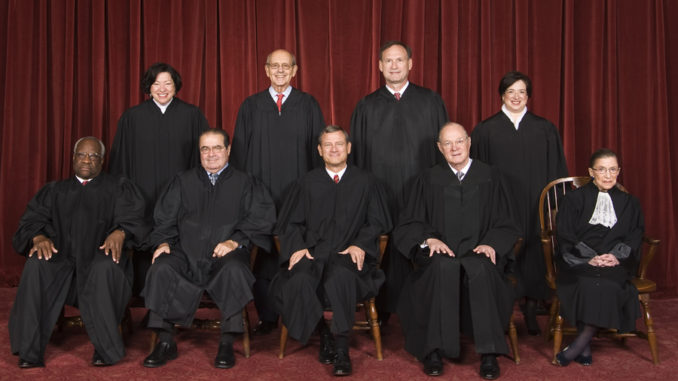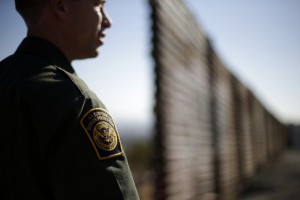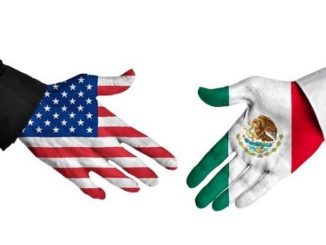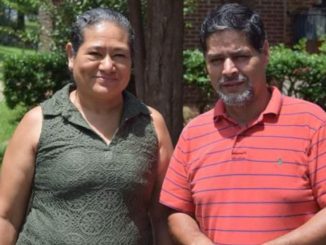
by Pamela Constable, Washington Post
Miguel Claros has done everything in his power — praying, protesting, fasting — to help salvage President Obama’s stalled proposals to shield illegal immigrants like himself and his longtime partner from deportation.
With Monday night’s appeals court ruling against Obama’s plan, the chances of obtaining that relief just got a lot slimmer.
“I don’t want my children to fear I will be taken from them one day, and I don’t want millions of other decent people to continue suffering such humiliation,” said Claros, a 51-year-old garage mechanic from Bolivia who lives in Silver Spring with his partner and their two U.S.-born sons. “I am filled with sadness and rage.”
The 2-to-1 ruling from a panel of the U.S. Court of Appeals for the 5th Circuit in New Orleans upheld a Texas court’s injunction against Obama’s executive actions, which the president proposed a year ago as a way to provide deportation relief to up to 5 million undocumented immigrants.
Fatima Quisbert, prays with her son Michael Claros, 6, before a pizza dinner at the family’s apartment in Silver Spring on Friday. (Allison Shelley/For The Washington Post)
Claros was among a group of activists who fasted for nine days last month outside the federal courthouse in New Orleans to demand a ruling on the case.
The administration announced Tuesday that it would appeal the decision to the U.S. Supreme Court. But time is running out for further legal action that could revive the president’s programs while he is still in office.
The high court would have to consider the case and rule in Obama’s favor by next summer, when its current term ends, in order for the program to start up before a new president is sworn in.
By summer, however, the 2016 presidential campaign will be in full gear, with illegal immigration a toxic issue and two leading Republican candidates vowing to end any possibility of deportation relief.
Advocates for undocumented immigrants said Tuesday that they were holding out hope Tuesday for a miracle — a favorable Supreme Court ruling that would come soon enough for at least a portion of eligible immigrants to apply for a reprieve.
Some groups said they have encouraged potential applicants to gather all their paperwork and be prepared to act in case such a ruling comes.
“It took the appeals court way too long to rule, but at least now there is an opportunity to get a petition to the Supreme Court. We will strongly urge and expect the White House to move as fast as it can,” said Kica Matos, a New York-based spokesperson for the Fair Immigration Reform Movement.
“Do we think we would have enough time to process all 5 million applicants? Probably not,” Matos said. “But definitely for a significant number to apply.”
[For non-citizen inmates, early release means early deportation]
The two programs proposed by Obama would allow two groups of illegal immigrants — several million who are parents of U.S.-born children, and up to 1 million others who arrived here as youths — to apply for deportation relief for up to three years.
Officials at CASA of Maryland and Virginia, the largest service agency for illegal immigrants in the greater Washington region, said they were relieved that the appeals court ruling had not been further delayed after months of inaction.
They said they were geared up to help applicants through the process if the Supreme Court hears the case and upholds Obama’s proposals.
“This still bodes well for us. We fully expected a negative ruling, but we are motivated by the fact that it came out now,” said George Escobar, director of legal services at CASA in Hyattsville, Md. “If we get a positive Supreme Court ruling by summer, that would still put us on schedule to have six to eight months for implementation” during Obama’s term.
“Regardless of what happens in a new administration, even in the worst-case scenario, we will still have the capacity to help a large portion of those eligible,” Escobar said.
Obama’s “deferred action” proposals, which he announced just over a year ago, have been in limbo for months, ever since a lawsuit by conservative state governors won an injunction against the programs in a Texas court.
The proposals are an attempt by the president to use executive powers to provide deportation relief for up to 5 million undocumented immigrants, after failing to win enough legislative support for broad immigration reform that would offer a path to legalization for most of the 11 million people in this country illegally.
After the White House announced the plan, U.S. officials and immigrant assistance groups around the country began preparing to implement the programs, only to see them abruptly suspended once the legal challenge was filed.
Since then, hundreds of thousands of undocumented families, mostly from Mexico and Central America, have been waiting and wondering whether they will have a chance to gain legal relief.
Among them are Jose Rosales, 48, a Mexican immigrant who has lived in New York City for two decades and raised five children there.
“We worked, we paid taxes, we raised our kids, but we never got our papers,” said Rosales, who said he had entered the U.S. at age 14 and earned money as a dishwasher, a cook, a grass cutter and a cemetery groundskeeper. Along the way, he also joined an immigrant rights group and became a regular protester at rallies.
“So many people like me are frustrated,” Rosales said, speaking in Spanish. “We listen to these politicians, the things they say about us. They don’t realize how much it hurts. Mr. Obama’s announcement was a great joy and relief to us, but then everything was blocked. Now we have to defend our rights.”



